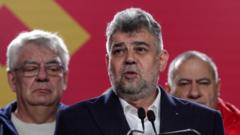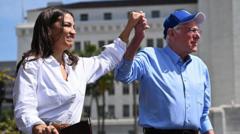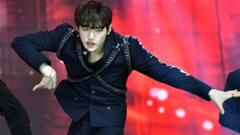As the race for the presidency heats up in South Korea, Lee Jae-myung and Kim Moon-soo emerge as primary contenders, each promising national healing amid political unrest.
South Korea's Presidential Contenders Face an Uphill Battle for Unity

South Korea's Presidential Contenders Face an Uphill Battle for Unity
Lee Jae-myung and Kim Moon-soo represent contrasting factions in a deeply divided South Korea, following the controversial impeachment of former President Yoon Suk Yeol.
The upcoming presidential election in South Korea, set for June 3, has seen two formidable candidates emerge: Lee Jae-myung of the Democratic Party and Kim Moon-soo from the conservative People Power Party. Both have compelling backstories that resonate with voters in a nation grappling with intense political division following former President Yoon Suk Yeol’s impeachment.
Lee Jae-myung, once a teenage laborer, is advocating for change after winning his party's nomination with a staggering 89.77 percent of the vote. He is positioning himself as a symbol of hope against the backdrop of the tumultuous political climate instigated by Yoon's short-lived attempt to impose martial law. Yoon's ousting has kept the election at the forefront of national debates, with many seeing the upcoming vote as a referendum on his leadership and the direction of the People Power Party.
Meanwhile, Kim Moon-soo, Yoon's former labor minister, represents a party that has solidified its right-wing stance rather than distance itself from the impeached president. Kim has notably stood firm in his support for Yoon, which could alienate voters eager for change. The contrasting trajectories of the two candidates illustrate the deep-seated polarization within South Korean society—a divide likely to remain despite both candidates’ pledges to foster unity.
As their campaigns kick off amidst an atmosphere of uncertainty, Lee and Kim must convince a fractured electorate that they can bridge this divide. With the backdrop of ongoing political turbulence, the stakes couldn’t be higher for South Korea’s future leadership.




















